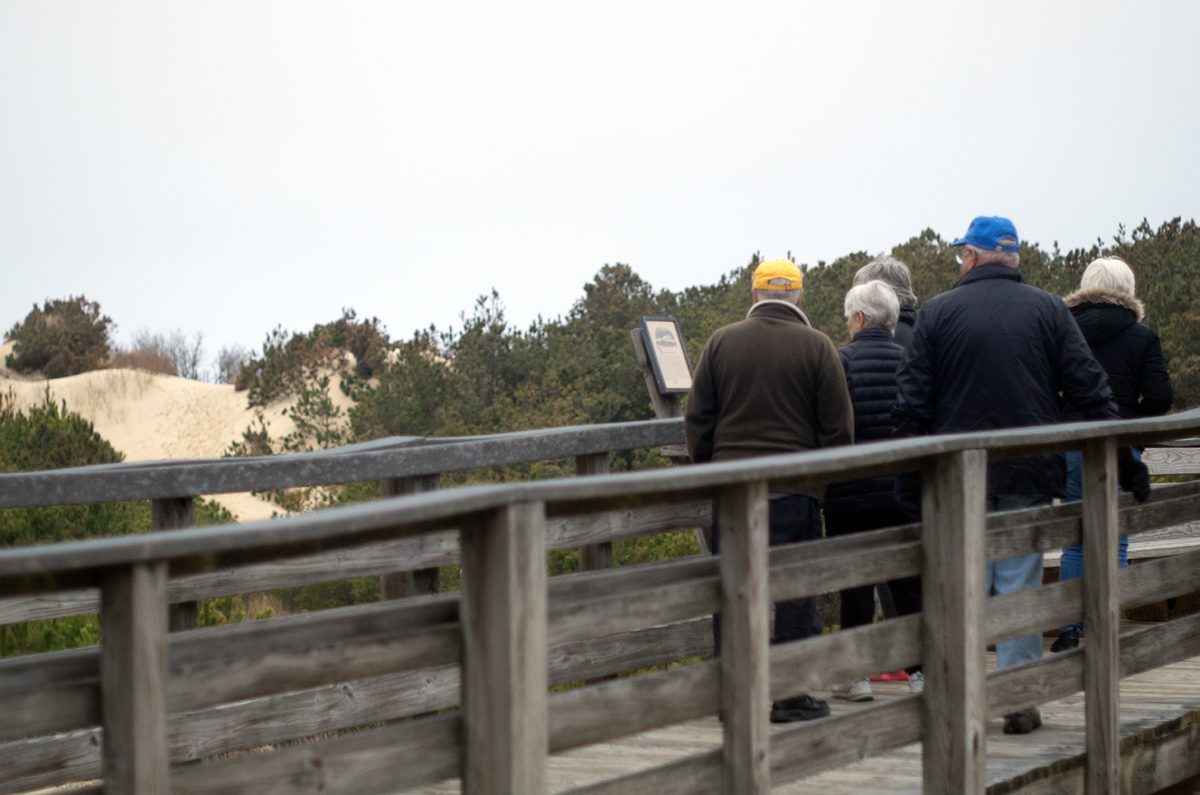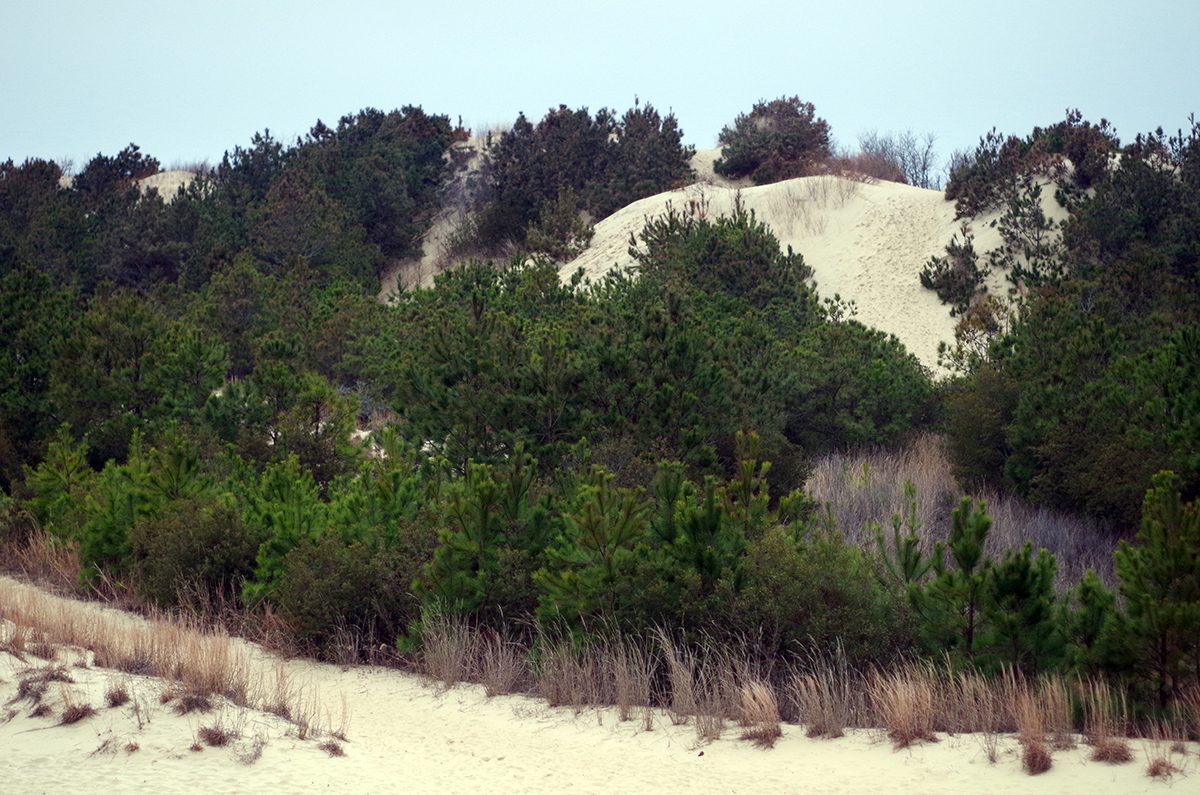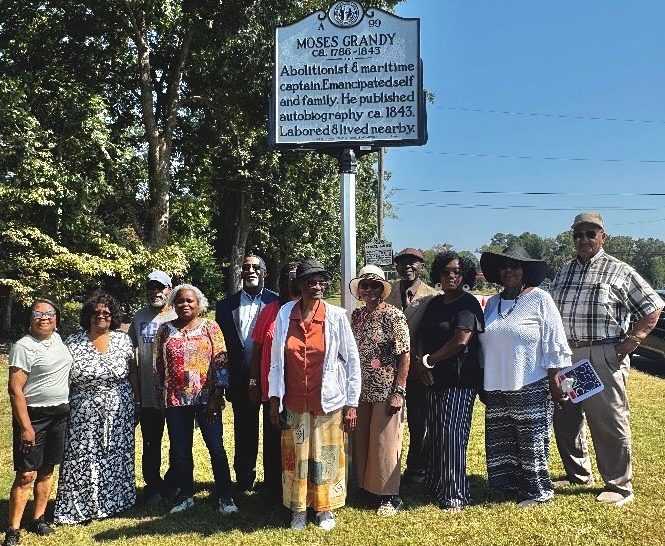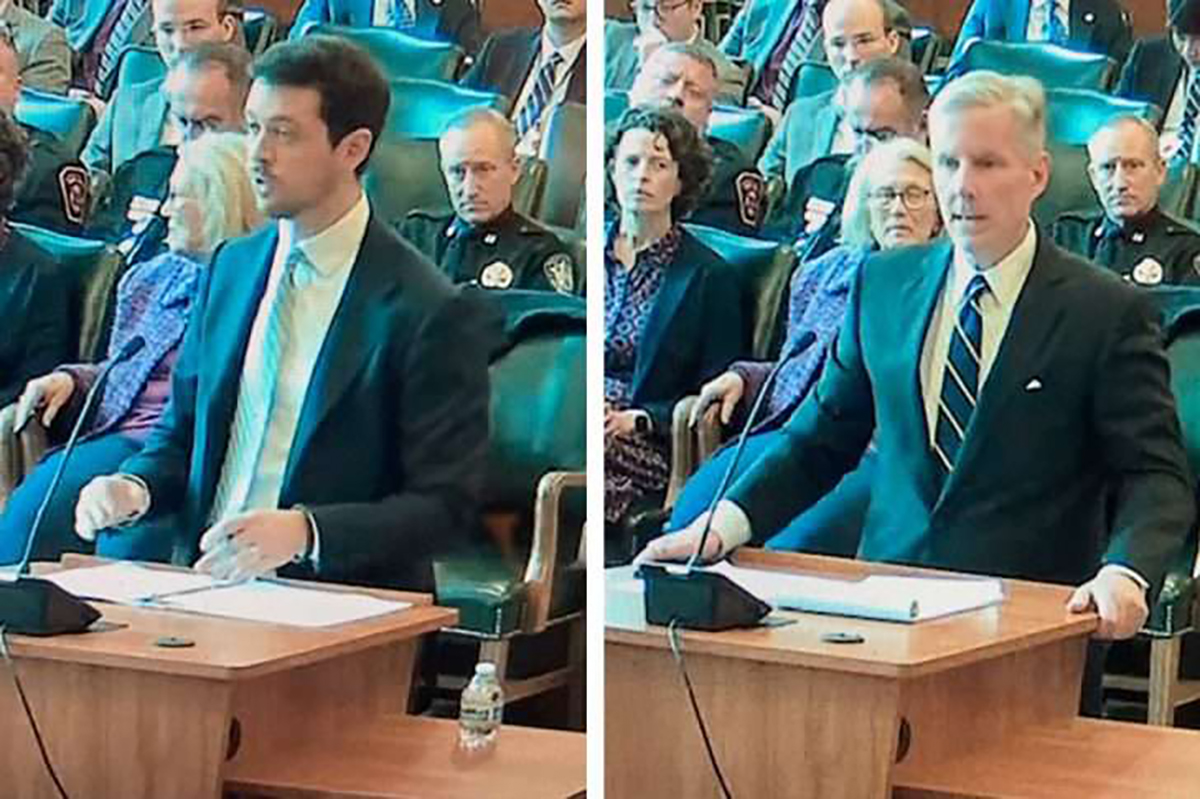
MANTEO — Amidst the tedium of a generally uneventful two-day meeting of the state Coastal Resources Commission last week, embers of prior tensions flared anew when Commissioner Jordan Hennessy contended that the panel had not properly authorized its lawsuit seeking to restore a protective environmental rule for Jockey’s Ridge.
The commission voted 9-3 against a motion Hennessy had advanced to withdraw from ongoing legal battle against the Rules Review Commission. Only Coastal Resources Commissioners Robbie Yates and Steve King voted with Hennessy, who took issue with how the lawsuit had been authorized.
Supporter Spotlight
“The crux of the issue here is that there was never a formal motion made, never a formal second made, or a formal vote to file a lawsuit against the Rules Review Commission,” Hennessy told the panel May 1 during the second day of the meeting. “And for something of that significance, I think it should have had a vote of this full commission to file suit against another state agency.”
After claiming he had been “stonewalled” by the commission and its legal counsel Mary Lucasse in seeking information, Hennessy, who was appointed to the board in 2023 by then-Insurance Commissioner Mike Causey, made a motion to direct counsel to “go ahead and withdraw that lawsuit.”
In her terse response, Lucasse detailed her answers to Hennessy’s “multiple requests,” including providing records of her authorization to bring the case.
“And then, as you know, information has been given about the lawsuit at every single legal update that we’ve had since then,” she continued. “I’ve kept you advised, and this commission has continued to be aware of and approve the steps that council has taken with that litigation from the beginning.”
The Coastal Resources Commission filed the lawsuit in late 2023 after 30 rules it had approved through a required periodic rules review process were removed from the Administrative Code, a move made shortly after the Rules Review Commission that fall kicked them back to coastal commission. The lawsuit asked the court to reinstate all 30 rules.
Supporter Spotlight
The 10-member Rules Review Commission, which is appointed by leaders of the GOP-controlled North Carolina General Assembly, argued those 30 rules were vague or inconsistent with state statutes.
After filing the lawsuit, the Coastal Resources Commission voted to temporarily restore 16 of the rules state Division of Coastal Management officials said were critical to day-to-day operations.
One of those longstanding rules designated Jockey’s Ridge as an area of environmental concern, or AEC.

In April 2024, State Geologist Kenneth Taylor confirmed that Jockey’s Ridge is a unique geologic formation that qualified it as an AEC.
A public hearing on a proposed amendment to the coastal commission’s rule governing the Jockey’s Ridge AEC was held at the end of its April 30 meeting, with four people speaking in support of the proposed amended rule. The proposed rule is nearly identical to the original 1984 rule, which protects the landmark from incompatible development and sand loss. Public comment is open through June 2.
Nags Head Mayor Ben Cahoon, one of the commenters, delivered a sharp rebuttal of the Rules Review Commission’s rationale for abruptly revoking the AEC protection in 2023, asserting the Coastal Resources Commission’s “righteous” role in protecting Jockey’s Ridge while condemning the “absurdity of the process” in which the coastal commission had been forced to spend valuable time and resources.
“But now, ideological forces that value unrestrained and excessive commerce supported by industries that are biased against environmental regulation want to erode your authority,” Cahoon told coastal commissioners.
In February, a Wake County Superior Court judge ruled in the coastal commission’s favor, and the rules commission appealed. It’s unclear how quickly the dispute can be resolved.
Related: Judge restores state’s 30 erased coastal development rules
“The CRC’s actions relating to the rules designating Jockey’s Ridge as an AEC and establishing use standards are related to the rules that are part of the RRC’s appeal of the Superior Court’s March 3 amended order (of the lawsuit,)” the coastal commission said last week in an email response to Coastal Review.
“The appeal has not yet been docketed in the Court of Appeals,” the email stated. “After Appellant RRC files the record for the appeals, the parties will submit briefs to the COA (Court of Appeals.) Only after the appeal is fully briefed will the Court of Appeals decide whether to schedule oral argument. The time required for the Court Appeals to issue an Opinion varies greatly from a few months after an appeal is fully briefed to more than a year.”
Coastal Resources Commission Chair Renee Cahoon, also in addressing Hennessy’s contention, said that the lawsuit was a direct result of the legislature’s budget provision that allowed the the codifier of rules to withdraw the rules. The rules pertinent to the Jockey’s Ridge AEC designation, “just disappeared from existence — 30 or more at a time,” she said.
“It made a major impact on the people that we serve in the state of North Carolina and the 20 coastal counties,” Cahoon said. “This was a decision that was not taken lightly. It was not taken unadvisedly, and it was taken in response to, basically, the disappearance of rules.”
Hennessy is a former top aide to Republican Sen. Bill Cook who represented Dare County in the legislature. He later became a businessman with county affordable housing development contracts and dredging project contracts about which a federal grand jury sought county records and subpoenaed six county commissioners late last year.
Hennessy also questioned that it took nearly a year for the lawsuit to be filed after it was authorized as well as the expenses incurred dealing with the protracted legal action.
“It’s by law that we have to go through the rules review process,” he said. “If you don’t like it, ask the legislature to change the law, but it’s to the point of that the legislature has had to appropriate two and a half or a quarter of a million dollars to the Rules Review Commission to defend its lawsuit against us.”
Commissioner Lauren Salter responded that the state Division of Coastal Management staff tried to “resolve (the Rules Review Commission’s) nitpicking issues” repeatedly, and it wasn’t the Coastal Resources Commission that picked the fight.
“We sought relief for the people of North Carolina, so that they would know what rules were in play and not lose rules overnight,” she said. “That’s why the lawsuit was filed after 307 days. We tried everything.”







